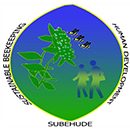Current Projects
Regenerating the Shinyanga Landscapes (RSL) – Program
RSL-Program a nature-based solutions to transform landscapes and lives of people.
General Goal of RSL-Program is to regenerate the degraded Shinyanga landscapes.
The Specific Program Goals are to accelerate landscape efforts to restore and sustain ecosystems, to build rural prosperity and to act against climate change. The program is in (pilot at Nyamalogo ward in Shinyanga District Council, Shinyanga region.
This program will mainly undertakes the following activities; convening landscape stakeholders, building landscape partnership, training stakeholders on Integrated Landscape Management (ILM), creating a shared understanding of the landscape through landscape analysis, writing a shared vision for a thriving landscape, writing a landscape action plan (short term) and implement interventions.
RSL-Program will has four benefits; (1) inspiration for the next generation (2) human well-being (3) healthy nature and (4) regenerative economy which align with collaboration areas; Ecology, Economy and Equity (3Es) and SEED.
The Program Outcomes shall be - inspired next generation, enhanced human well-being, healthy nature, regenerative economy and restored ecological integrity.
Sustainable Beekeeping for Sustainability
Promotes good beekeeping practices at the grassroots levels as an individual, family beekeeping, community-supported beekeeping, beekeeping value chain development and calling farmers to stop destroying and poisoning bees’ foods, habitats and nests.
Biodiversity Conservation and Ecosystem Restoration Program
This program aims to strengthen community capacity for integrated ecosystem management and improve biodiversity conservation, restoration, and sustainable use in targeted agricultural landscapes in all ASAL regions of the United Republic Tanzania.
Youth and Women in Sustainable Beekeeping
Api-preneurship development for greener jobs, decent works and self-employment, and sustaining bees’ habitats.
Construction of Sustainable Human Development Training Centre (SHDTC)
SuBeHuDe is in the process (designing phase) of Constructing SHDTC at Nyamalogo village in Shinyanga District Council for professional and hands on demonstration purposes.
Connecting the Unconnected Project
This project aiming to bridge the gender digital divide gap by promoting of digital inclusion through Information Spots, connecting communities, schools, health centres, women centres in the different regions in Tanzania.
SEED Program
Social Enterprises and Entrepreneurship Development (SEED) Program.
Trees for Bees Initiative
This is a tree planting initiative as one of our common project activities and planting trees is a means to fight climate crisis. It addresses all five key areas of climate crisis; forest, emission, water, foods and people - foods for people. When designing our nature restoration and giving back nature projects, we select appropriate indicators of success from the following lists we adapted from The Road to Restoration guide from the World Resources Institute based on our field project experiences and current academic knowledges:
- Biodiversity: Increased species biodiversity, species protection and connection between habitats.
- Air: Improved air quality, improved airflow management, reduced urban air temperature.
- Water: Improved water quality, increased water availability, improved water management.
- Soil: Improved soil quality, improved soil stability, and improved soil management.
- Climate: Increased climate change mitigation, adaptation, and resilience.
- Community: Increased community income, health, cohesion and participation in restoration.
- Culture: Improved land rights, increased protection of natural heritage, increased support for local practices.
- Energy: Reduced energy scarcity, increased availability of energy resources, and improved management of energy resources.
- Economy: Increased land value, reduced cooling costs, increased ecotourism potential.
- Food & Products: Increased crop yield, improved routes to market, increased financing potential.
We recognise that tree planting can help achieve some of global goals in some contexts, it is the only relevant intervention and in many cases, is the most appropriate intervention aiming to plant at least 1,500,000+ native and fruit trees yearly.
Organic Beekeeping and Regenerative Agriculture (OBRA-Tz)
Organic Beekeeping and Regenerative Agriculture in Tanzania (OBRA-Tz): This is a Participatory Guarantee Systems (PGS) locally focusing on quality assurance systems to certify producers of regenerative agriculture and wild collections based on active participation of stakeholders. The Non-Wood Forest Products (NWFPs) are not limited to bees' products, mushrooms and regenerative farming products in farms, retail shops and wholesale at local and (inter)national level. Please click here to learn more about our PGS; https://directory.ifoam.bio/pgs_groups/761
